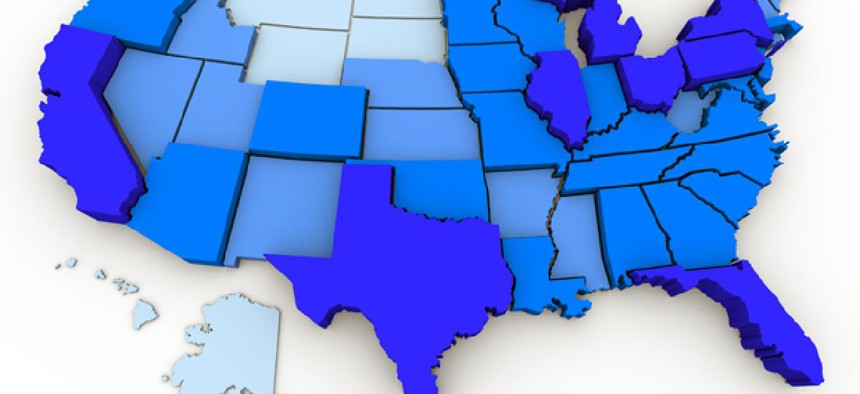
iQoncept/Shutterstock.com
Coming to A State Near You: Big Spending Cuts
White House offers up state-by-state details on the effects of sequestration.
The White House is trying to raise pressure on Congress to cancel automatic spending cuts by releasing the most detailed accounting to date of how the reductions would hit in the 50 states. The cuts, known as the sequester, take effect on March 1.
Among the highlights of the White House’s report:
- Virginia would see 90,000 civilian Department of Defense employees furloughed for the remainder of the year, decreasing their pay by roughly $648 million.
- In the swing state of Ohio, 350 jobs for teachers and school aides would be at risk.
- Eleven Navy ships, based in Norfolk, Va., would not see any maintenance in 2013.
- California would lose $5.4 million to cover the cost of meals for senior citizens.
- And, in Rhode Island, a state with a consistently high employment rate, 4,550 fewer residents would receive job training and assistance.
This new data is part of the White House’s ongoing effort to prod Republicans to acquiesce on raising taxes, again, as part of a bigger deal to unravel the sequester. Republicans are loath to raise any new taxes following the fiscal cliff deal. Instead, they would prefer to make cuts to entitlement programs in lieu of the sequester’s rough across-the-board nature.
Yet, by providing a slow-drip of information over the last several days about the impact of the spending cuts, the White House has succeeded in making the pressure feel constant and fresh. On Friday, for instance, Transportation Secretary Ray LaHood joined the White House press briefing to outline potential cuts that could increase wait times and delays at airports by as much as 90 minutes. The White House released a state-by-state report on the cuts on Sunday, and early this week, the president is scheduled to travel to Newport News, Virginia to a shipbuilding factory to talk about—you guessed it—the sequester.
“It’s the president’s responsibility to make the American people understand what’s at stake here in this debate. This is going to have a very real impact on people’s lives and their communities,” Dan Pfeiffer, a senior adviser to the president, said on Sunday. “There are hundreds of thousands of Americans working today who will lose their jobs as a consequence of this Republican position.”
The Republicans, of course, have been saying exactly the opposite: That the president’s failure to lead and to propose any large changes to the country’s spending trajectory and to entitlement programs got us into this mess.
"Republicans in the House have voted - twice - to replace President Obama's sequester with smarter spending cuts. The White House needs to spend less time explaining to the press how bad the sequester will be and more time actually working to stop it," Michael Steel, a spokesman for House Speaker John Boehner, said in a statement.
Republicans believe their political hand will strengthen as the cuts start to occur since it will be up to the administration to oversee the process of carrying out the reductions, says one House Republican aide.
Recent polling from the Pew Research Center and Bloomberg shows that the American public, for now, will largely blame the Republicans if the sequester cuts happen.
But once hundreds of thousands of workers lose pay and little kids get booted from Headstart programs and Navy ships are neglected, the politics of sequestration could rapidly change. When that happens, it’s unclear which party, if any, can win the political argument in the face of lots of public anger and serious fatigue with Washington’s ongoing budget battles.
(Image via iQoncept/Shutterstock.com)






